Indoxacarb is a highly effective insecticide on peanuts, helping to control pests, protect crops and improve sustainable crop yields.
Indoxacarb Insecticide on Groundnut Trees
Indoxacarb is one of the most trusted options among farmers and agricultural experts for controlling armyworms on peanut plants. This active ingredient not only effectively manages pests but also provides benefits for crops. In this article, Sataka will guide you through the details of Indoxacarb, its mechanism of action, benefits, and proper usage.
1. What is Indoxacarb? Effective Armyworm Control
Indoxacarb, an active ingredient belonging to the oxadiazine group, stands out in plant protection due to its effectiveness in controlling armyworms on peanut plants. By disrupting the nervous system of insects, it blocks nerve signals, ensuring effective control of armyworms. When applied, Indoxacarb not only reduces damage caused by pests but also prevents their growth and reproduction, ensuring crop yield and quality.
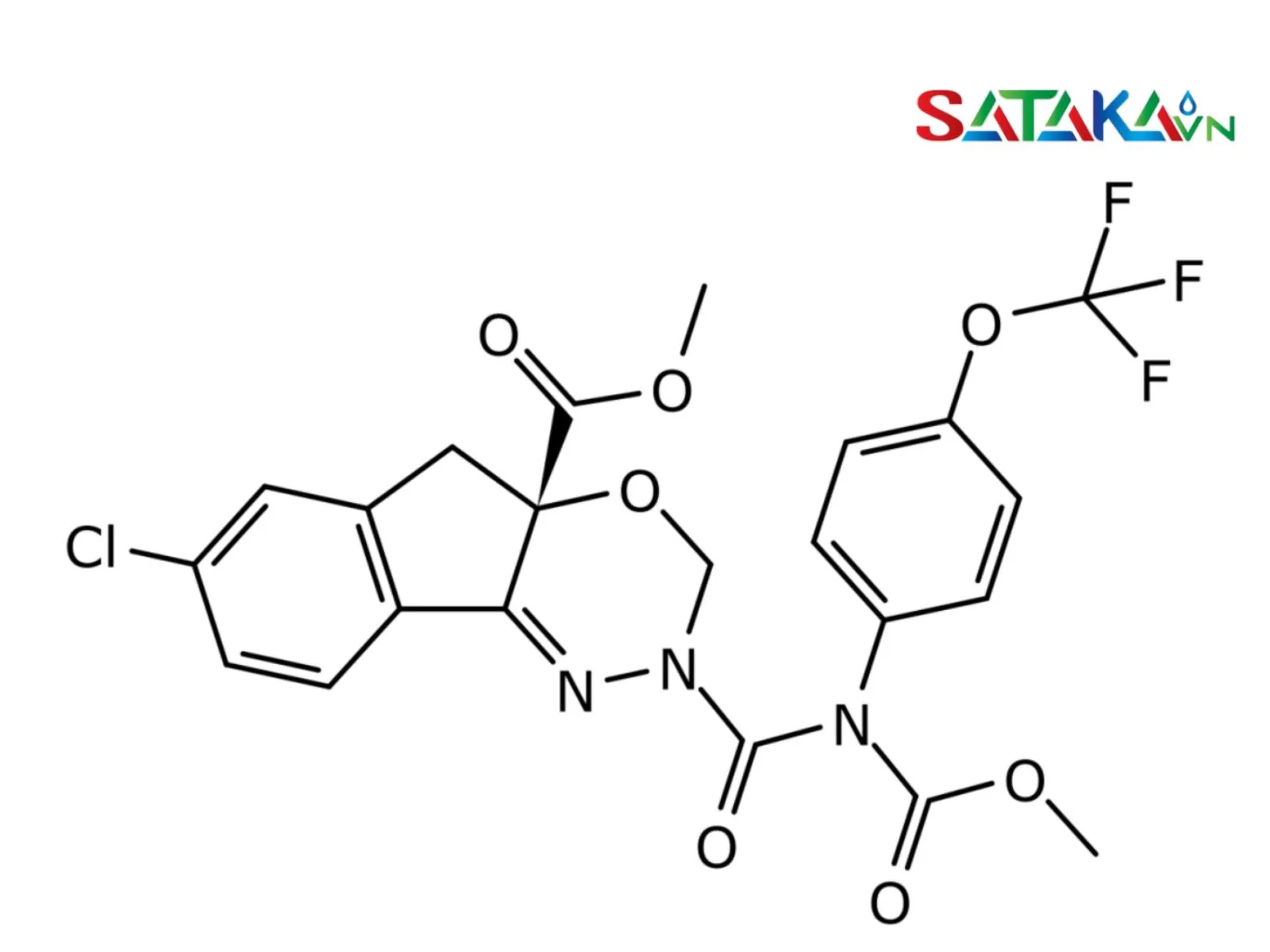
Indoxacarb
Advantages of Indoxacarb:
- High effectiveness in eliminating armyworms on peanut plants by acting on the insects’ nervous system.
- Safe for crops and the environment due to its rapid degradation and minimal pollution.
- Long-lasting protection, preventing pest recurrence.
- Easy to use with flexible application methods.
Disadvantages of Indoxacarb:
- Higher cost compared to other insecticides.
- Risk of resistance development with continuous use.
- Requires strict adherence to usage guidelines for maximum efficacy.
- Potential impact on beneficial insects.
2. Benefits of Using Indoxacarb on Peanut Plants
The application of Indoxacarb for controlling armyworms on peanut plants offers significant advantages for both farmers and crops. Below are the key benefits:
- Effective armyworm control: Indoxacarb impacts the nervous system of armyworms, causing rapid death and protecting peanut plants while maintaining yield.
- Minimized crop damage: Prevents pests from damaging leaves and pods, allowing plants to grow healthily.
- Environmental and ecosystem protection: Indoxacarb degrades quickly, reducing soil and water pollution and having minimal impact on beneficial insects.
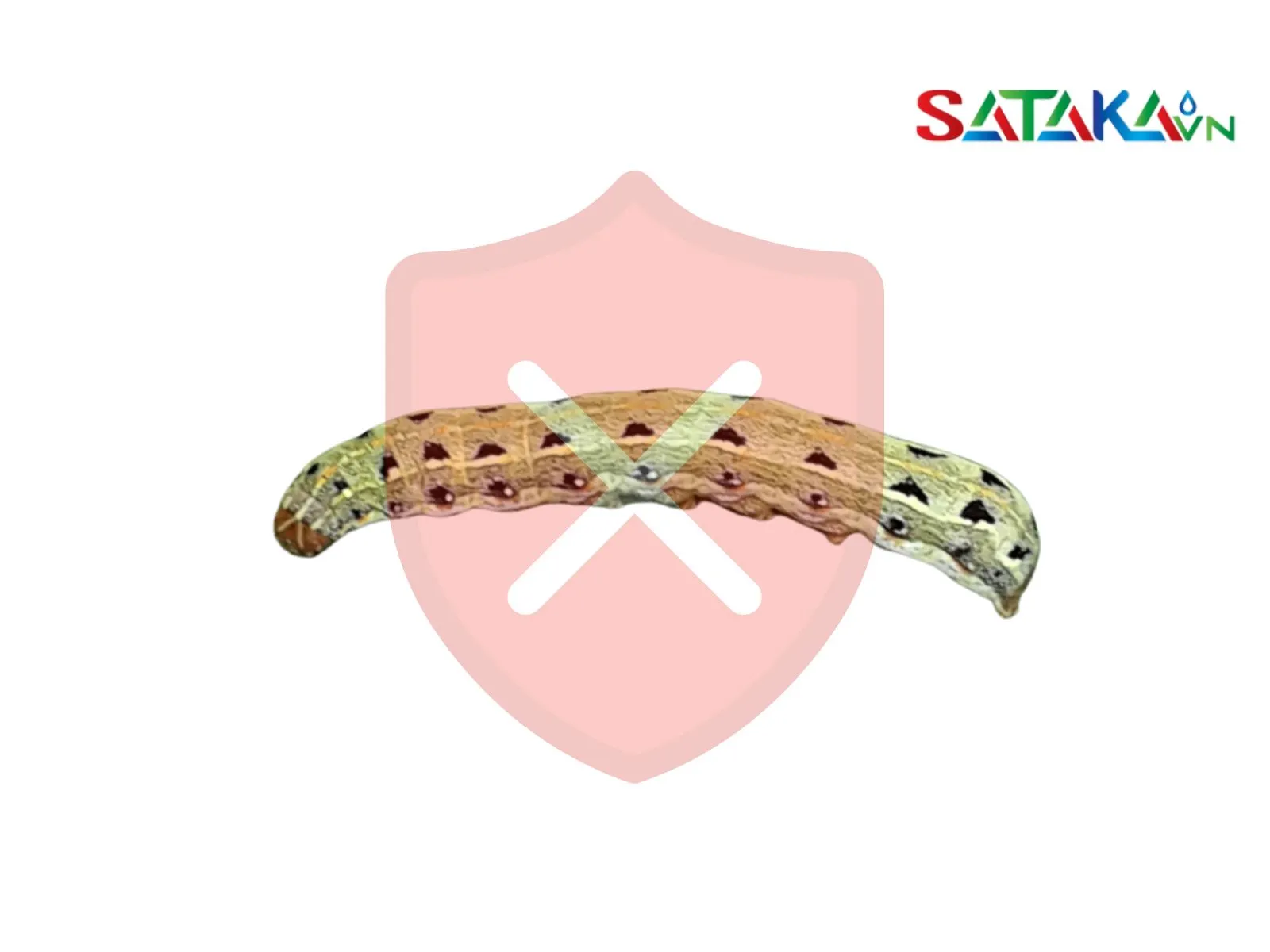
Prevents worm infestation
3. Guidelines for Using Indoxacarb to Control Armyworms
To effectively use Indoxacarb for controlling armyworms on peanut plants, follow these guidelines:
- Identify timing and pest levels: Monitor the level of armyworm infestation and apply when pests reach the damage threshold, usually in the early or mature stages, to minimize damage and prevent spread.
- Prepare the solution: Mix Indoxacarb according to the exact ratio specified on the label and stir well for an even distribution during spraying.
- Weather conditions: Spray on dry days, avoiding rain or strong winds, and apply when temperatures are between 20–30°C for optimal results.
- Prevent resistance: Rotate Indoxacarb with other insecticides to reduce the risk of resistance development.
- Integrated pest management: Combine Indoxacarb with biological and cultural practices to enhance protection for peanut plants.
For detailed advice on pricing and application, contact the Hotline: 0856555585.
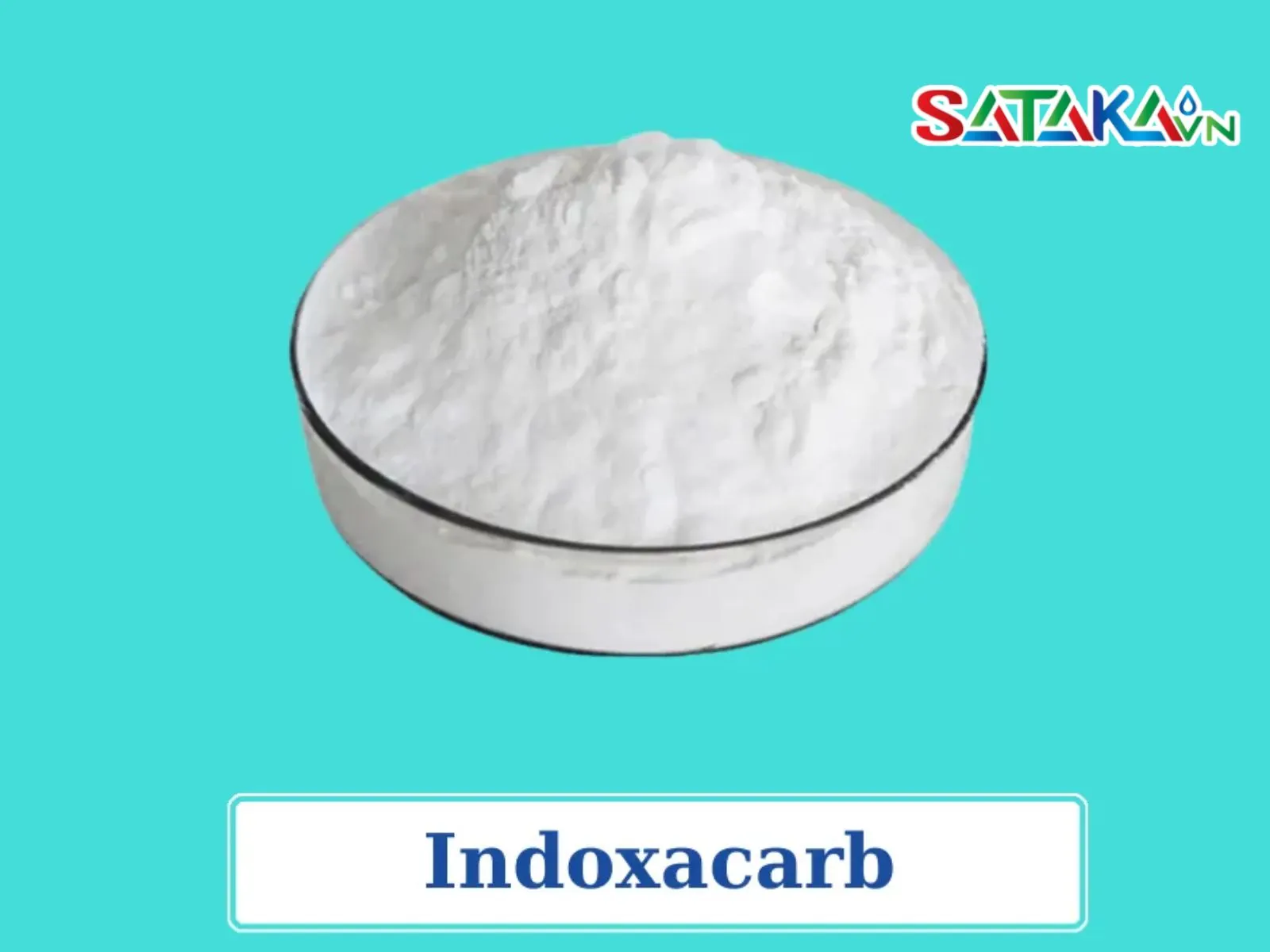
Prepare the active ingredient Indoxacarb
4. Notes on Using Indoxacarb and Preventing Armyworm Recurrence
When using Indoxacarb for controlling armyworms on peanut plants, consider the following factors to optimize effectiveness and reduce the risk of pest recurrence:
4.1. Follow usage instructions
- Accurate dosage: Carefully read and follow the manufacturer’s guidelines. Using too little or too much product may lead to unsatisfactory results or harm crops.
- Timing: Apply the product at the recommended time, usually when armyworms are in sensitive stages. Spraying too early or late may reduce control effectiveness.
4.2. Regular monitoring and inspection
- Pest monitoring: Frequently check for armyworms on peanut plants. If signs of recurrence or increased pest activity are observed, take timely intervention measures.
- Evaluate effectiveness: After each application of Indoxacarb, assess the level of control to adjust pest management strategies if needed. Keeping records can improve future pest management practices.
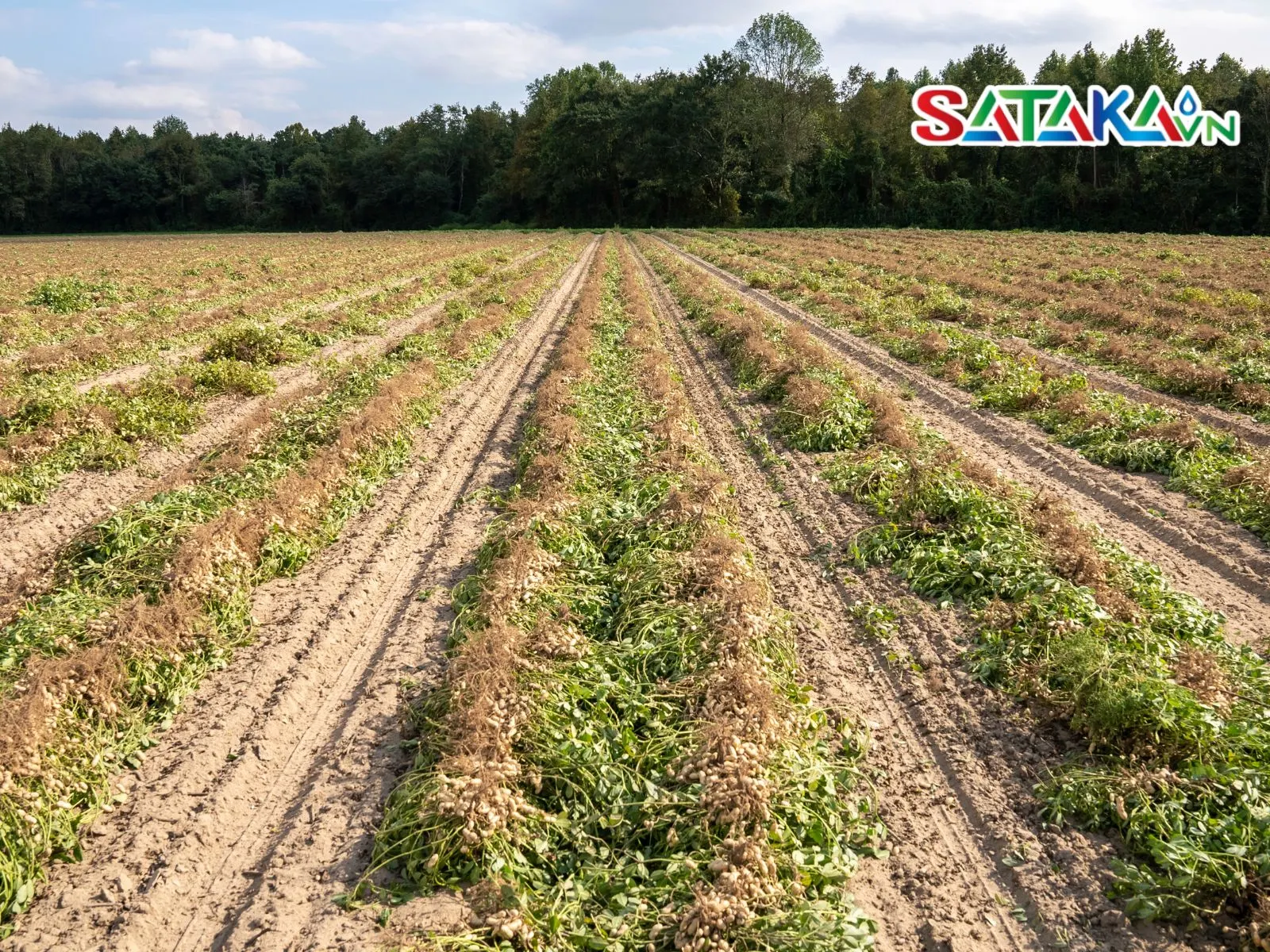
Regularly monitor and check for worms in the peanut garden
4.3. Protect health and the environment
- Use protective equipment: Always wear gloves, masks, and goggles when applying Indoxacarb to avoid direct exposure.
- Waste management: Properly dispose of leftover product and packaging to prevent environmental contamination. Follow local regulations for handling agricultural waste.
5. Integrated Measures for Controlling Armyworms
Effective and sustainable control of armyworms on peanut plants requires combining various methods. Below are key strategies:
5.1. Cultural practices:
- Field sanitation: Remove old crops, weeds, and plant residues after each harvest to reduce habitats and food sources for pests.
- Crop rotation: Change crops to disrupt the life cycle of armyworms.
- Balanced fertilization and irrigation: Provide adequate nutrients and regulate soil moisture to strengthen plants, improving their resistance to pests.
5.2. Biological methods:
- Use of natural predators: Predatory insects such as ladybugs, hoverflies, or Bacillus thuringiensis (Bt) bacteria help control armyworms without harming crops or beneficial organisms.
5.3. Physical methods:
- Light traps: Attract and eliminate nocturnal pests without using chemicals.
- Pheromone traps: Use pheromones to lure armyworms into traps, aiding in monitoring and control.
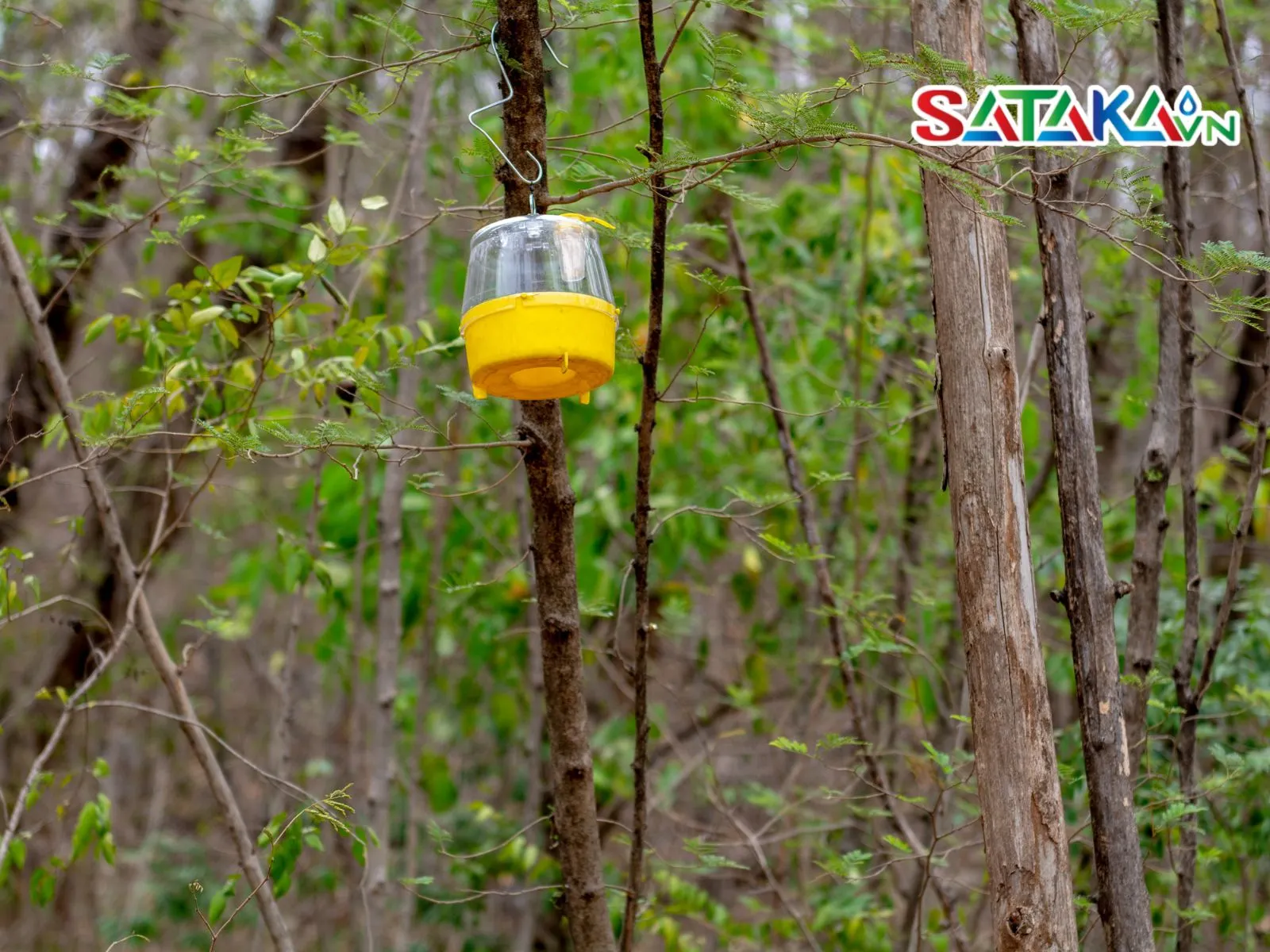
Pheromone Trap
6. Trusted Source for Quality Indoxacarb
When sourcing Indoxacarb for controlling armyworms on peanut plants, selecting a reputable supplier is crucial to ensure quality and effectiveness. Sataka Vietnam is a top choice you can trust.




